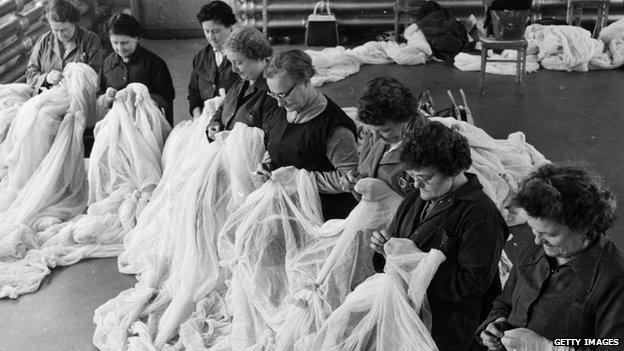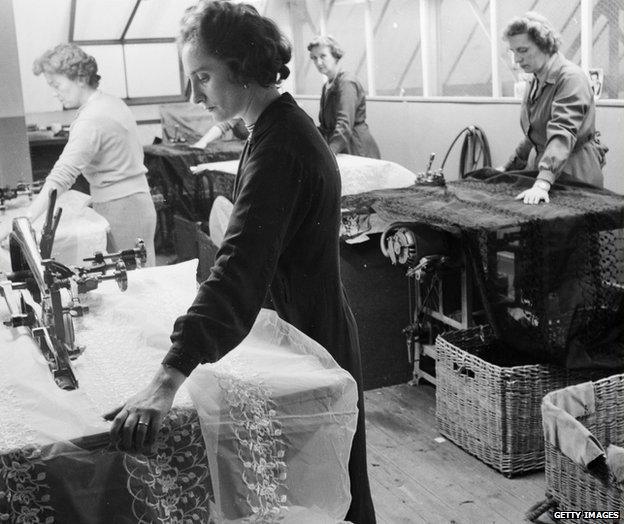Designated Arts Council status for Nottingham lace collection
- Published

In 1959 there were about 100 lace factories in Nottingham
Nottingham City Museums & Galleries' lace collection has been added to Arts Council England's list of nationally important collections.
It is one of four to be named among the finest cultural exhibits housed in non-national museums, libraries and archives across England.
The British Motor Industry Heritage Trust, The Linnean Society Collections and The ss Great Britain have also received the award.
City officials said it was an honour.
Nottingham City councillor Dave Trimble, portfolio holder for leisure and culture, said: "It is wonderful news that the city's lace collection has been recognised.
"Lace production played such a huge role in the heritage of our city and it is important to remember the international reputation of Nottingham lace and that we continue to celebrate it today."

The City Museums & Galleries' collection tells the story of Nottingham's important role in the lace industry
The Arts Council scheme, which started in 1997 with the aim of supporting those with a significant story to tell, now has 140 collections, including Churchill's archives and the history of the surgical profession.
Since it started, a total of £32m has been invested in the scheme.

Nationally important collections
The British Motor Industry Heritage Trust, external, based at Gaydon, in Warwickshire, owns the world's largest collection of historic British cars, featuring vehicles produced by Austin, Morris, Mini, MG, Wolseley, Riley, Triumph, Rover and Land Rover.
The Linnean Society Collections, external - housed in London - include books, letters, portraits and art collected by some of history's most famous scientists, such as Carl Linnaeus, Charles Darwin and Sir Joseph Banks.
Nottingham City Museums & Galleries' lace collection, external tells the story of the city's industrial and textile past and explains how a domestic craft became an important mass market commodity.
The ss Great Britain Trust Collection, external, based in Bristol, tells the story of Victorian maritime technology and the rise of the British mercantile marine. It also features the work of Isambard Kingdom Brunel

- Published3 September 2010